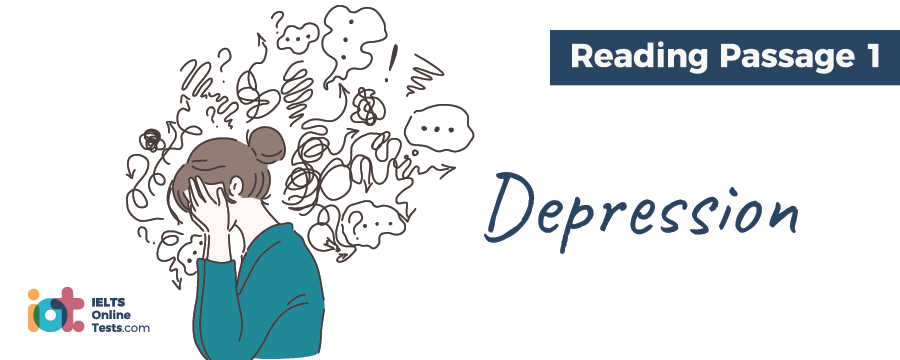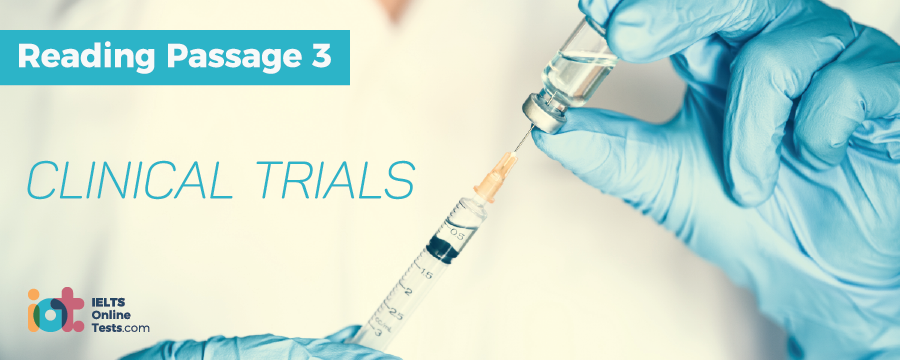
IELTS Mock Test 2021 July
- 发布时间: 21 Jul 2021
- 模考人次: 476,204
正确答案:
Part 1: Question 1 - 13
- 1 E
- 2 F
- 3 C
- 4 A
- 5 B
- 6-8 C,E,G
- 9 I
- 10 B
- 11 H
- 12 D
- 13 G
- 1 E
- 2 F
- 3 C
- 4 A
- 5 B
- 6-8 C,E,G
- 9 I
- 10 B
- 11 H
- 12 D
- 13 G
Part 2: Question 14 - 27
- 14 iii
- 15 ii
- 16 v
- 17 vii
- 18 i
- 19 NOT GIVEN
- 20 FALSE
- 21 TRUE
- 22 TRUE
- 23 C
- 24 B
- 25 A
- 26 D
- 27 B
- 14 iii
- 15 ii
- 16 v
- 17 vii
- 18 i
- 19 NOT GIVEN
- 20 FALSE
- 21 TRUE
- 22 TRUE
- 23 C
- 24 B
- 25 A
- 26 D
- 27 B
Part 3: Question 28 - 40
- 28 tooth loss
- 29 preventative properties
- 30 exhibiting symptoms
- 31 common diet
- 32 C
- 33 B
- 34 A
- 35 C
- 36 Pre-clinical
- 37 Sequence
- 38 Optimum
- 39 Complex
- 40 withdrawal
- 28 tooth loss
- 29 preventative properties
- 30 exhibiting symptoms
- 31 common diet
- 32 C
- 33 B
- 34 A
- 35 C
- 36 Pre-clinical
- 37 Sequence
- 38 Optimum
- 39 Complex
- 40 withdrawal
详细试卷答案解析:
Questions 1-5
Reading Passage 1 has seven sections A-G.
Which paragraph contains the following information?
Write the correct letters A-G in boxes 1-5 on your answer sheet.
1 Details of treatment alternatives for worst case scenario depression.
2 Information regarding cases where drug treatment is inappropriate.
3 Details of how those diagnosed with depression may be more vulnerable than other members of society,
4 Information about society’s attitudes to depression and similar illnesses.
5 Information regarding why estimates of incidence of future growth in cases may be overly exaggerated.
- 1 Answer: E
Keywords in Questions
Similar words in Passage
1. Details of treatment alternatives for worst case scenario depression.
In extreme cases, where an individual exhibits behaviour which Indicates that they may cause physical harm to themselves, psychiatric hospitalisation may be necessary as a form of intensive therapy.
+ Question 1 is about treatment alternatives for worst cases related to depression.
+ Look at the last sentence in paragraph E, ‘extreme cases’ in this paragraph is equivalent to ‘worst case scenario depression’ in the question. Also, in that situation, ‘psychiatric hospitalization’ is considered a necessary alternative.
+ Therefore, the correct answer for Q1 should be E.
- 2 Answer: F
Keywords in Questions
Similar words in Passage
2. Information regarding cases where drug treatment is inappropriate.
around a quarter of diagnosed clinical depression cases should actually be considered as significant but none-the-less ordinary sadness and maladjustment to coping with trials in life, indicating that in such cases, psychotherapy rather than treatment through medication is required .
+ Question 2 is about some cases when drug treatment is not required.
+ Look at the first sentence in paragraph F, in some cases such as ‘ordinary sadness and maladjustment’, psychotherapy is preferred instead of using ‘treatment through medication’.
+ So the answer for Q2 should be F.
- 3 Answer: C
Keywords in Questions
Similar words in Passage
3. Details of how those diagnosed with depression may be more vulnerable than other members of society,
Sufferers of clinical depression are said to be at higher risk of resorting to drug abuse or even suicide attempts than the rest of the population.
+ Question 3 is about the way people suffering from depression compared with others in society.
+ Take a look at the last sentence of paragraph C, it is mentioned that sufferers tend to be ‘at higher risk of resorting to drug abuse or even suicide attempts’ in comparison with the rest.
+ Therefore, the answer for Q3 should be C.
- 4 Answer: A
Keywords in Questions
Similar words in Passage
4. Information about society’s attitudes to depression and similar illnesses.
The pressures of modern life seem to have resulted in an increase in cases of emotional disharmony and government initiatives in many countries have, of late, focused on increasing the general public’s awareness and sympathy towards sufferers of mental illness and related conditions.
+ Take a look at the third sentence of paragraph A: ‘society’s attitude’ is equivalent to ‘general public’s awareness’, and ‘depression and similar illnesses’ is also equal to ‘mental illness and related conditions’.
+ The question is about the public’s response towards some illnesses people have to suffer from. Also, paragraph A mentions the information.
+ Therefore, the answer for Q4 should be A.
- 5 Answer: B
Keywords in Questions
Similar words in Passage
5. Information regarding why estimates of incidence of future growth in cases may be overly exaggerated.
However, such figures are not unanimously supported, as some experts believe that the diagnostic criteria used to identify՛ the condition are not precise enough, leading to other types of depression being wrongly classified as ‘clinical’.
+ Question 5 is about the reasons why the number of ‘future growth in cases’ can be ‘exaggerated’.
+ Take a look at the last sentence in paragraph B, it is due to imprecise ‘diagnostic criteria’ leading to ‘other types of depression being wrongly classified as ‘clinical’.
+ Therefore, the answer for Q5 should be B.
Questions 6-8
Choose THREE letters A-G.
Write your answers in boxes 6-8 on your answer sheet.
NB Your answers may be given in any order
Which THREE of the following statements are true of depression?
- A
- B
- C
- D
- E
- F
- G
- 6-8 Answer: C,E,G
Keywords in Questions
Similar words in Passage
Q6-Q7-Q8: Which THREE of the following statements are true of depression?
Answers:
C. In Britain, it is likely that there are more individuals who live with the condition without the help of a doctor than those being officially treated.
E. Lethargy may be one of the symptoms of depression.
G. Approaches to treating depression are not universal.
Studies have shown that this disorder is the leading cause of disability in North America; in the UK almost 3 million people are said to be diagnosed with some form of depression at any one time, and experts believe that as many as a further 9 million other cases may go undiagnosed.
Clinical depression is generally diagnosed when an individual is observed to exhibit an excessively depressed mood and/or ‘anhedonia’ – an inability to experience pleasure from positive experiences such as enjoying a meal or pleasurable social interaction – for a period of two weeks or more, in conjunction with five or more additional optimized symptoms.
Treatment approaches vary quite dramatically from place to place and are often tailored to an individual’s particular situation; however, some variation of a combination of medication and psychotherapy is most commonly used.
Questions from 6 to 8 are about true statement towards depression.
+ Take a look at the second sentence of paragraph B, it is mentioned that the number of British undiagnosed with depression (9 million) outnumbers that of those diagnosed (almost 3 million). So the correct answer for Q6 should be C.
+ Have a look at the first sentence of paragraph D, it can be clearly understood that people suffering from depression tend to show ‘inability to experience pleasure from positive experiences’. This phrase has the same meaning with the word ‘lethargy’ in the question. So the answer for Q7 should be E.
+ Look at the second sentence in paragraph E, it is said that although there are many ways to treat depression ‘treatment approaches vary quite dramatically’, it is ‘variation of a combination of medication and psychotherapy’ is most widely used. This means that ways to treat depression are not popular. Therefore, the answer for Q8 should be G.
Questions 9-13
Complete the summary of paragraphs F and G with the list of words A-L below.
Write the correct letter A-L in boxes 9-13 on your answer sheet.
Whilst recovery through counselling rather than medicine may be more 9 , results once achieved may have more 10 with some patients.
Counselling sessions are geared towards improving the subject’s relationship with others and their own 11 , encouraging sufferers of depression to take on a more 12 outlook.
The extent to which genetic disposition and sociological factors impact on state of mind is 13 . Many people undergoing counselling therapy do so with the purpose of unlearning negative behaviour and reactions.
| A | gratifying |
| B | longevity |
| C | ambition |
| D | optimistic |
| E | pessimistic |
| F | difficulty |
| G | inconclusive |
| H | self-image |
| I | gradual |
| J | unequivocal |
| K | immediate |
| L | categorical |
- 9 Answer: I
Keywords in Questions
Similar words in Passage
Q9: Whilst recovery through counselling rather than medicine may be more ______, [...]
Recovery as a result of psychotherapy tends, in most cases, to be a slower process than improvements related to medication; however, improvements as a result of psychological treatment, once achieved, have been observed in some individuals to be more long term and sustainable than those attained through prescription drugs.
+ Take a look at question 9, the answer for this question must be an Adjective. The question compares the progress of recovery between ‘counselling’ and ‘medicine’.
Understanding the idea in paragraph F, we can see that ‘psychotherapy’ is equal to ‘counselling’ and ‘medication’ has the same meaning with ‘medicine’. Also, it is said that recovery thanks to psychotherapy seems to be ‘a slower process’ than the latter.
Therefore, ‘slower’ appears the right word for Q9. Besides, the word ‘gradual’ is equivalent to ‘slow’, so the correct answer for Q9 should be I.
- 10 Answer: B
Keywords in Questions
Similar words in Passage
Q10: Whilst recovery through counselling [...], results once achieved may have more _______ with some patients.
Recovery as a result of psychotherapy tends, in most cases, to be a slower process than improvements related to medication; however, improvements as a result of psychological treatment, once achieved, have been observed in some individuals to be more long term and sustainable than those attained through prescription drugs.
+ Take a look at question 10, the answer for this question should be a Noun. It is about the results observed in several patients treated with counselling.
It is mentioned in paragraph F that some individuals will see ‘more long term and sustainable’ results.
Therefore, the answer for Q10 should be B.
- 11 Answer: H
Keywords in Questions
Similar words in Passage
Q11: Counselling sessions are geared towards improving the subject’s relationship with others and their own ________, [...]
Sessions involve encouragement of an individual to view themselves and their relationships in a more positive manner, with the intention of helping patients to replace negative thoughts with a more positive outlook.
Look at Q11, the answer here must be a Noun. The question is about the benefit that people gain from counselling sections.
Paragraph F demonstrates that sessions enhances not only individual’s relationship but also themselves. Therefore, the answer for Q11 should be H. self-image
- 12 Answer: D
Keywords in Questions
Similar words in Passage
Q12: Counselling sessions are geared towards improving the subject’s relationship with others and their own self-image encouraging sufferers of depression to take on a more _______ outlook.
Sessions involve encouragement of an individual to view themselves and their relationships in a more positive manner, with the intention of helping patients to replace negative thoughts with a more positive outlook.
Look at Q12, the answer here must be an Adjective. Understanding the idea in the question, the answer here should be D. optimistic because it is equivalent to the word ‘positive’ in the paragraph.
- 13 Answer: G
Keywords in Questions
Similar words in Passage
Q13: The extent to which genetic disposition and sociological factors impact on state of mind is _______. Many people undergoing counselling therapy do so with the purpose of unlearning negative behaviour and reactions.
However, it remains unclear as to whether this is truly an inherited genetic trait or whether biological and environmental factors common to family members may be at the root of the problem.
+ Take a look at Q13, the answer for this question must be an Adjective.
+ The last paragraph mentions ‘inherited genetic trait’ and ‘biological and environmental factors’ which are equivalent to ‘genetic disposition’ and ‘sociological factors’ respectively.
+ Understanding the idea in the question and paragraph, the information related to the two mentioned factors above is still ‘unclear’.
+ So the answer for Q13 should be G. inconclusive that is equal to ‘unclear’ in the passage.
READING PASSAGE 1
You should spend about 20 minutes on Questions 1-13, which are based on Reading Passage 1 below.

DEPRESSION
A. It is often more difficult for outsiders and non-sufferers to understand mental rather than physical illness in others. While it may be easy for us to sympathise with individuals living with the burden of a physical illness or disability, there is often a stigma attached to being mentally ill, or a belief that such conditions only exist in individuals who lack the strength of character to cope with the real world. The pressures of modern life seem to have resulted in an increase in cases of emotional disharmony and government initiatives in many countries have, of late, focussed on increasing the general public’s awareness and sympathy towards sufferers of mental illness and related conditions.
B. Clinical depression, or ‘major depressive disorder’, a state of extreme sadness or despair, is said to affect up to almost 20% of the population at some point in their lives prior to the age of 40. Studies have shown that this disorder is the leading cause of disability in North America; in the UK almost 3 million people are said to be diagnosed with some form of depression at any one time, and experts believe that as many as a further 9 million other cases may go undiagnosed. World Health Organisation projections indicate that clinical depression may become the second most significant cause of disability’ on a global scale by 2020. However, such figures are not unanimously supported, as some experts believe that the diagnostic criteria used to identify՛ the condition are not precise enough, leading to other types of depression being wrongly classified as ‘clinical’.
C. Many of us may experience periods of low morale or mood and feelings of dejection, as a natural human response to negative events in our lives such as bereavement, redundancy or breakdown of a relationship. Some of us may even experience periods of depression and low levels of motivation which have no tangible reason or trigger. Clinical depression is classified as an on-going state of negativity, with no tangible cause, where sufferers enter a spiral of persistent negative thinking, often experiencing irritability, perpetual tiredness and listlessness. Sufferers of clinical depression are said to be at higher risk of resorting to drug abuse or even suicide attempts than the rest of the population.
D. Clinical depression is generally diagnosed when an individual is observed to exhibit an excessively depressed mood and/or ‘anhedonia’ – an inability to experience pleasure from positive experiences such as enjoying a meal or pleasurable social interaction – for a period of two weeks or more, in conjunction with five or more additional recognised symptoms. These additional symptoms may include overwhelming feelings of sadness; inability to sleep, or conversely, excessive sleeping; feelings of guilt, nervousness, abandonment or fear; inability to concentrate; interference with memory capabilities; fixation with death or extreme change in eating habits and associated weight gain or loss.
E. Clinical depression was originally solely attributed to chemical imbalance in the brain, and while anti-depressant drugs which work to optimise levels of ‘feel good’ chemicals – serotonin and norepinephrine – are still commonly prescribed today, experts now believe that onset of depression may be caused by a number, and often combination of, physiological and socio-psychological factors. Treatment approaches vary quite dramatically from place to place and are often tailored to an individual’s particular situation; however, some variation of a combination of medication and psychotherapy is most commonly used. The more controversial electroconvulsive therapy (ECT) may also be used where initial approaches fail. In extreme cases, where an individual exhibits behaviour which Indicates that they may cause physical harm to themselves, psychiatric hospitalisation may be necessary as a form of intensive therapy.
F. Some recent studies, such as those published by the Archives of General Psychiatry, hold that around a quarter of diagnosed clinical depression cases should actually be considered as significant but none-the-less ordinary sadness and maladjustment to coping with trials in life, indicating that in such cases, psychotherapy rather than treatment through medication is required. Recovery as a result of psychotherapy tends, in most cases, to be a slower process than improvements related to medication; however, improvements as a result of psychological treatment, once achieved, have been observed in some individuals to be more long term and sustainable than those attained through prescription drugs. Various counselling approaches exist, though all focus on enhancing the subject’s ability to function on a personal and interpersonal level. Sessions involve encouragement of an individual to view themselves and their relationships in a more positive manner, with the intention of helping patients to replace negative thoughts with a more positive outlook.
G. It is apparent that susceptibility to depression can run in families. However, it remains unclear as to whether this is truly an inherited genetic trait or whether biological and environmental factors common to family members may be at the root of the problem. In some cases, sufferers of depression may need to unlearn certain behaviours and attitudes they have established in life and develop new coping strategies designed to help them deal with problems they may encounter, undoing patterns of destructive behaviour they may have observed in their role models and acquired for themselves.
-------------------
Great thanks to volunteer Mèo Gấu who has contributed these explanations and markings.
If you want to make a better world like this, please contact us.












